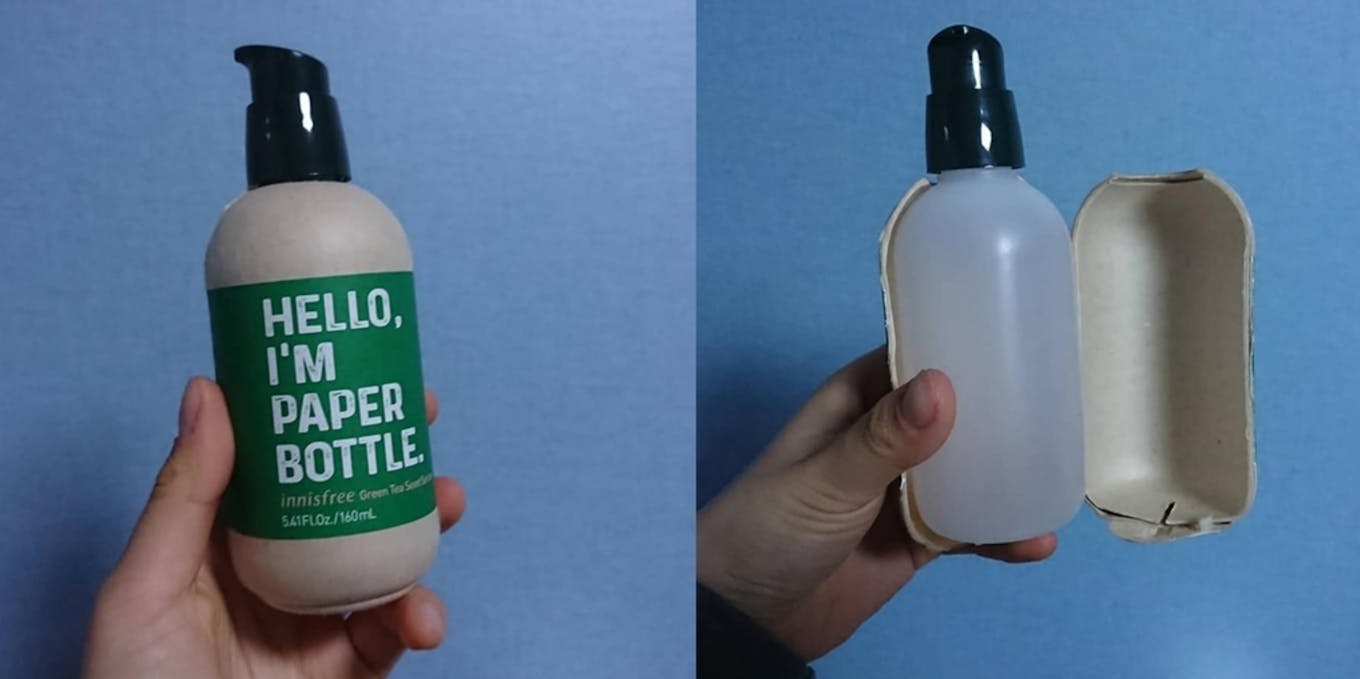What Is Greenwashing?

Greenwashing Who?
Being an eco-conscious human means making decisions with a little more love.
Spending a little bit more, planning a little more ahead, and taking a little bit more time doing your research.
Due to the rise of greenwashing, knowledge is key. Greenwashing is a deceptive marketing practice that companies use to make their products appear eco-friendly, even when they're not.
They do this to tap into the growing interest in sustainability and convince us to buy their products over others. In fact, a recent survey found that 62% of Australians are more likely to buy a product if it's eco-friendly.
The TL;DR is that greenwashing sucks. Aside from the fact that it's a breach of consumer rights, it also means that customers are potentially choosing these lame products over actual planet-friendly ones. And as many greenwashed products have incorrectly-marked disposal options, they're also not being recycled or composted in the right ways.
So not only does it misrepresent the impact of products, but it can also make it harder for consumers to make genuinely sustainable choices. It's like trying to find a needle in a steaming pile of plastic.
With this blog, we're bringing the knowledge. Read on for how to spot greenwashing, and then the best ways to avoid it.

So? What Am I Looking For?
Companies that greenwash have figured out the best ways to package and market their products to give the appearance of being eco-friendly. These products look green enough (literally, sometimes) that it keys into the customer's brain that they're making a sustainable decision by choosing that product over others.
Keep in mind, when reading these, that a product isn't necessarily greenwashed if it looks like this. But use these traits as warning bells to remind you to look at them with X-ray precision.
Brown or green packaging
Beware of the khaki! Sure - bland, forest-coloured packaging is also adored by actual sustainable companies. But it's also a sure-fire way to trick our brains into not looking any harder at the environmental merit of the product.
Be wary also of any symbolism such as plants or animals on the product. A cuddly rabbit does not a compostable toothpaste make.
Feel-Good Phrases
Watch out for anything fluffy like "Kind to the Planet", "Green", "Natural".
Are these true of actual planet-friendly products? Of course! We use these phrases all the time.
But we also have the accreditation to back it up. When you see a product with something like "Made with love" on the side, use it as a reminder to read and research that ingredients label.
Baseless Disposal Options and Ingredients
Of all the greenwashing tactics, this is perhaps the most insidious.
Products that are listed as compostable may not be compostable in your area, or may only be industrially compostable. Or may not actually be compostable at all.
Similar to that, products are often labelled as recyclable if they're a soft plastic. Since the big RedCycle collapse, we can't just assume that any plastic labelled as recyclable is actually so.
Also, look out for products that are listed as a certain-percentage recycled or plant-based. Buying these is the equivalent of buying a fake plant with real roots. The plastic's still there!


Mum, Pick Me Up, I Think I'm Being Greenwashed!
Check for certs
Learn the difference between biodegradable (another greenwashing buzzword) and compostable products here. Then, always check that the "compostable" product is actually government certified. Without certifications, there's no real proof of how or when they'll break down, even if they're chucked straight into the fiery pits of Mount Doom.
If the product's certified industrially compostable, you still need get on the blower to your local council. Not every council has the facilities to compost products like Ecomailers, so it's your job to learn what yours can take before you pop it in the green bin.
When it comes to "recyclable" plastics, they should be numbered. Read up on which of the seven types of plastics are recyclable here. And if it's a soft plastic that's labelled as recyclable, you can look at it and think I know what you're doing here, greenwashers!
Use the Experts
Luckily, there are people out there doing the legwork so you don't have to. The worst greenwashing offenders in Australia are cosmetics and personal care, textiles and garments, shoes, food and beverages.
Download and use apps such as Good On You, Shop Ethical!, Think Dirty, Fair Food Forager and GoodFish when you're shopping. They allow you to scan barcodes and read more on brands or food to see if they live up to ethical standards, and will often suggest sustainable alternatives.

Stay Smart (and Sexy)
And that's that on greenwashing.
While it's unfortunately alive and well, there's plenty of ways to avoid falling for those sneaky marketing tactics. Do your research, read the labels, and don't be afraid to ask questions. Questions are great!
And if all else fails, just remember: if a company's sustainability efforts seem too good to be true, they probably are. So don't be fooled by eco-friendly buzzwords and fancy packaging. You're smarter than that, and your wallet (and the planet) will thank you for it.
Be green, be savvy, and keep making eco-friendly decisions with that little bit more love.




























Thanks Andy! We’re so glad it was helpful!
Great article! Thanks for sharing some of the sneaky tricks companies use to get us to buy their “eco-friendly” products.
Leave a comment